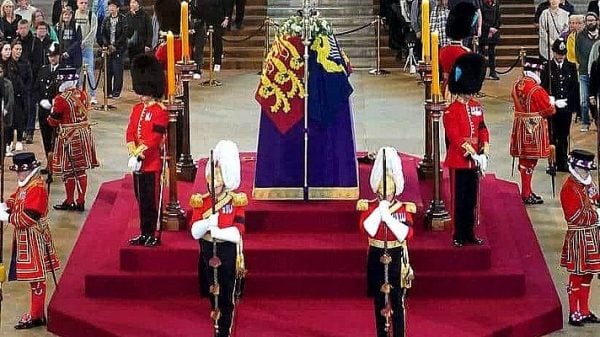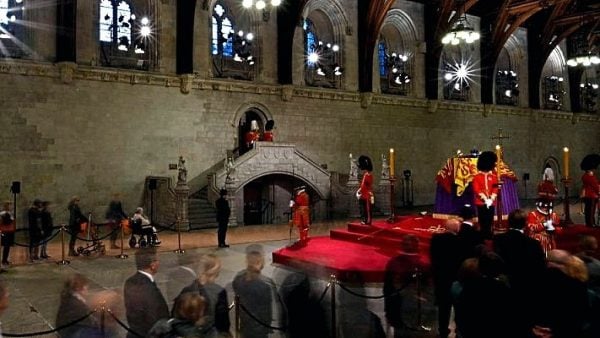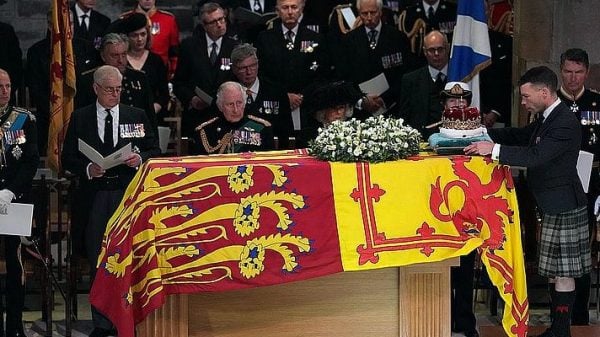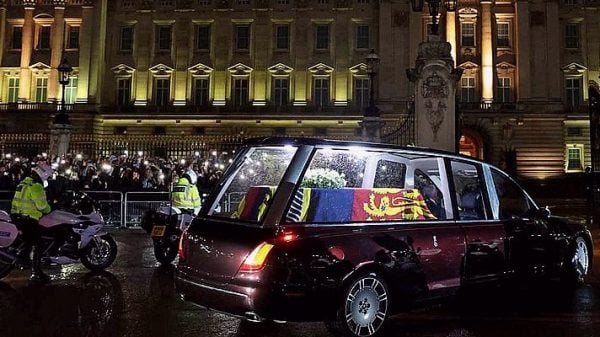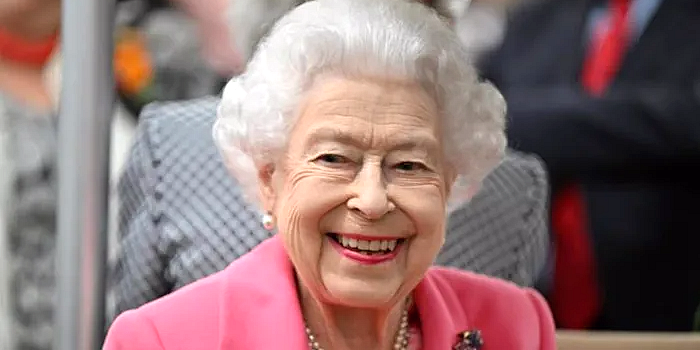
LONDON: British republicans are hoping that Elizabeth II will be the last queen, but experts say the monarchy seems set to survive, as long as it moves with the times.
“We’re not expecting the monarchy to be abolished whilst the queen is on the throne,” said Graham Smith, head of the Republic movement that wants the UK to have an elected, non-partisan president as head of state.
But he told AFP: “This is the last monarch who is going to have anything like the sort of popular support the queen has.”
Once her eldest son Prince Charles is on the throne, “then yes, we can certainly achieve that goal and get rid of the monarchy,” he added.
Next week sees concerts, parades and picnics over four days to mark the queen’s 70 years on the throne, with the country turned a sea of red, white and blue.
The unprecedented Platinum Jubilee is being seen as a chance to reflect on the queen’s central place in British life since 1952.
But with the queen now 96, the jubilee also heralds the inevitable end of the second Elizabethan age.
That, said the Republic movement on its website, is a chance to “Make Elizabeth the last”.
Smith said Charles is not necessarily held in the same affection as the queen and slammed the monarchy as an “undemocratic, anti-democratic and elitist” institution that costs taxpayers millions.
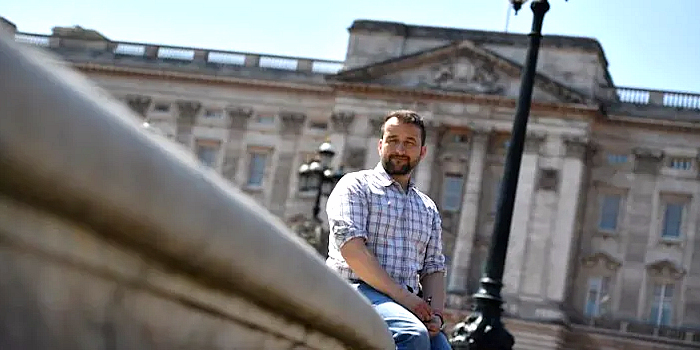
‘Old man’
Opinion polls indicate that the monarchy is less popular among younger people who are less attached to tradition and more sensitive to anti-colonial struggles.
Smith predicts this trend will continue.
According to the British Future think-tank, 58 percent of Britons support the monarchy, while 25 percent would prefer a republic after Elizabeth.
But the gap between the two narrows to 40 percent royalist and 37 percent republican among the young.
“When the Queen dies, it will be a very big turning point,” said Robert Hazell, professor of government and the constitution at University College London.
The queen was in her twenties when she ascended to the throne and was “a very attractive young woman”, he told AFP.
But Charles, 73, will by contrast be “an unattractive old man” when he becomes king, Hazell added. “You might have a difficult accession.”
“There might be a bit of a public campaign by some of the tabloid newspapers for Prince William to become the king,” he said of Charles’ eldest son, aged 39.
William is second in line to the throne and his son, Prince George, is third in the succession. So even if the British monarchy does endure it is unlikely to have another reigning queen for quite some time.
To maintain public support, the monarchy will have to adapt to a world that is very different from that of the last century, said public relations expert Mark Borkowski.
“I’m not sure anybody knows what the shape of the monarchy will be but it certainly won’t be in the same shape as it was whilst the Queen was alive,” he said.
“But they have to show a sense of change,” as they did to a certain extent after the death of princess Diana in 1997.
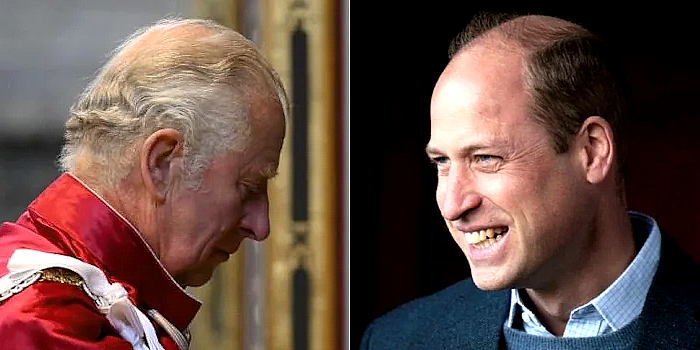
Reform
Right-wing tabloid the Daily Mail has reported that William respects his father and grandmother’s approach “but believes the monarchy should be ‘agile’ to survive and thrive”.
William and his wife Kate had a tumultuous tour of the Caribbean in March, hit by anti-monarchy protests and accusations of colonial overtones.
“He is looking ahead to how things will be in 40 years’ time. He wants the monarchy to continue to be a unifying force, to bridge the gap,” the Mail wrote.
William is also open to a lesser role for the monarchy in the Commonwealth, 14 of whose members other than the UK have the queen as head of state.
Commonwealth member Barbados ditched the queen as head of state last November but Hazell doubts there will be a domino effect leading back to the UK.
In any case, a referendum would be needed for the UK to become a republic but no one is calling for one and is not seen as a political vote-winner.
Besides, he said, “the UK is a republic in all but name”.
“Our monarchy is a parliamentary monarchy and a constitutional monarchy, where the monarch has no effective political power.”
While in countries such as France the “president is the monarch,” the UK’s royal head of state holds the job for longer.
“It’s easier therefore for the people to identify with the head of state and indeed to identify and feel loyalty to the head of state and also to the other members of the royal family,” Hazell said.
ADVERTISEMENT
ADVERTISEMENT







